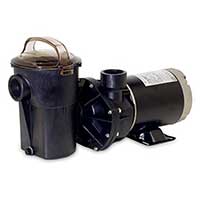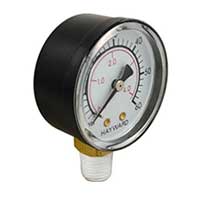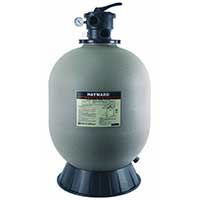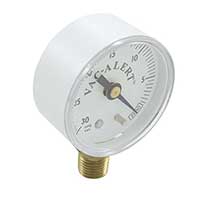Total Dynamic Head is a sum of the flow resistance added to the pump from the installed pipe size, pipe length and equipment. Knowing the TDH is important for choosing the correct size pump to achieve proper turnover rate and filtration.
READ: A Comprehensive Guide to Pool Pumps: Types, Flange Connections, Dynamic Head, Flow Rate, and Filtration Efficiency
RESULTS SHOWN HERE
More About Total Dynamic Head
What is Total Dynamic Head
Total Dynamic Head (TDH) is crucial when choosing the appropriate pump size for a swimming pool. TDH is the measurement of the total resistance of the water flow moving through the pool system. When the water flows through the pipes, pipe fittings, filter, valves, heater, chlorine generator, solar systems, outlets/inlets, and return fittings, it creates a resistance to the water flow. More friction causes the pump to work harder to push the pool water through the pool system. The Total Dynamic Head is an important calculation that effects the whole pool circulation system.
READ: Priming Your Pool Pump: A Comprehensive Guide to Ensuring Optimal Performance
The pool pump must be able to function properly and overcome the resistance. It must be able to pull the water from the pool, move the water through all the twist and turns in the piping, move it through all the equipment, and complete the journey back into the pool. Since pool pumps give different water flow rates and resistance levels, it is important to select the right pump for the pool system.
How to calculate Total Dynamic Head
To calculate the correct TDH for the swimming pool the readings from two gauges will be needed. The pressure gauge will measure the pressure in pounds per square inch, also known as PSI. The PSI gauge is inserted on the pressure side of the existing pump. The vacuum gauge is needed to measure the suction, in inches of mercury, also known as Hg. The Hg gauge inserts into the suction side of the existing pump. After inserting both gauges, release the pressure on the system from the filter relief valve. For the most accurate measure of the TDH, test with a clean filter.
READ: Mastering Calcium Hardness in Pool Water
Consider the TDH
Before replacing the pool pump, its important to calculate the Total Dynamic Head. If the TDH is higher than what the pump is rated for, it can result in inadequate flow and filtration leading to higher chemical demands and unclean water, it can also damaged equipment. It can also affect chlorine generators as well as other equipment like UV and Ozone systems that rely on certain flow rates to function correctly.





